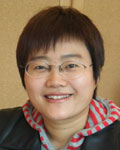|

This year marks the 50th anniversary of the Organization of African Unity (OAU), which would later become the African Union (AU). On May 25, 1963, leaders of independent African states signed a charter declaring the OAU's establishment. The day was also designated as African Liberation Day, or Africa Day—an important memorial holiday.
During the past 50 years, African countries and people have undergone a long journey that began with struggles for freedom and independence and later turned to working on development and unity. They have earned great achievements, but they also face mighty challenges.
Initial goals
When the OAU came into being, over one third of African land was colonized, and native people of South Africa were battling white racism for equality. In the meantime, even independent African countries were being threatened by imperialism and former colonial economic control or separatist activities. Fighting against imperialism and colonialism and realizing the full liberation of the whole continent were Africa's primary missions during the second half of the 20th century.
The OAU found great success in moving toward Africa's complete liberation by organizing a Liberation Committee, chaired by Tanzania's founding President Julius Nyerere, to assist African struggles for independence. In April 1994, South Africa elected Nelson Mandela as president of the new democratic government, marking the continent's complete liberation and decolonization. The OAU Liberation Committee was dismissed in August that year, having fulfilled its historic mission.
The OAU strongly promoted Africa's unity and economic integration. In 1964, 21 OAU states agreed to establish the Commission on Mediation, Conciliation and Arbitration to address internal disputes and safeguard African unity. With the OAU's support, many sub-regional economic integration organizations were born from the 1960s onward. In June 1991, the OAU's 27th Summit passed the Abuja Treaty, which drew a blueprint for the ultimate goal of building an African economic community.
As a regional government organization, the OAU's functions were inevitably limited by its own capability and resources, willingness of its member states and the international situation. For example, proxy wars took place in Africa during the Cold War, when the United States and the Soviet Union fought for hegemony. Plus, structural problems in the African economy barred the development of economic integration.
The new ideal
In July 2002, the AU formally replaced the OAU as a brand new political and economic alliance that covered the whole of Africa. Unlike the OAU's focus on political goals, the AU aims to guide the whole continent in facing the challenge of economic globalization and realizing the economic and social renaissance of Africa. The AU's ambitions are more diversified involving many aspects including politics, diplomacy, development and security.
Accepting the system of multi-party democracy after the Cold War, many African countries have formed and cemented their own democratic systems. But military coups and unconstitutional power transfers have occurred in Africa from time to time. Many countries encounter political instability during elections. By promoting the African Peer Review Mechanism and opposing power grabs by unconstitutional methods, the AU has pushed forward Africa's democratic development. Moreover, the AU has insisted on projecting a shared voice on international issues for the past decade. It values independent and diversified diplomacy, actively participates in international cooperation and dialogue, and intends to maximize Africa's interests in international cooperation through active involvement.
Shortly before the AU was established, African countries designed a new plan for development and security, the New Partnership for Africa's Development. The plan blueprints Africa's mid- and long-term development in the 21st century, with the aim of ensuring a bigger role in globalization and promoting sustainable growth and development. During the past 10 years, Africa's annual average economic growth rate has been maintained at about 5 percent. It is now widely regarded as a continent with the greatest development potential.
However, Africa's development and renaissance have been challenged by instability caused by armed conflicts and the spread of terrorism. The AU has made unremitting efforts to cope with these challenges. But because of Western intervention and limited capability and resources in Africa, the AU has run into setbacks while confronting problems in its own way. Now there even appears to be a dangerous tendency of the AU being marginalized.
Finding a balance between independent peacekeeping and foreign intervention, enhancing the AU's capability of solving Africa's crises, and protecting peace and stability on the continent have become a priority. Besides, Africa must solve deeper economic problems such as poverty, inequality, a weak economic foundation, a narrow economic structure and a widening income gap.
The author is director of the African Research Section at the Chinese Academy of Social Sciences
Email us at: yanwei@bjreview.com | 